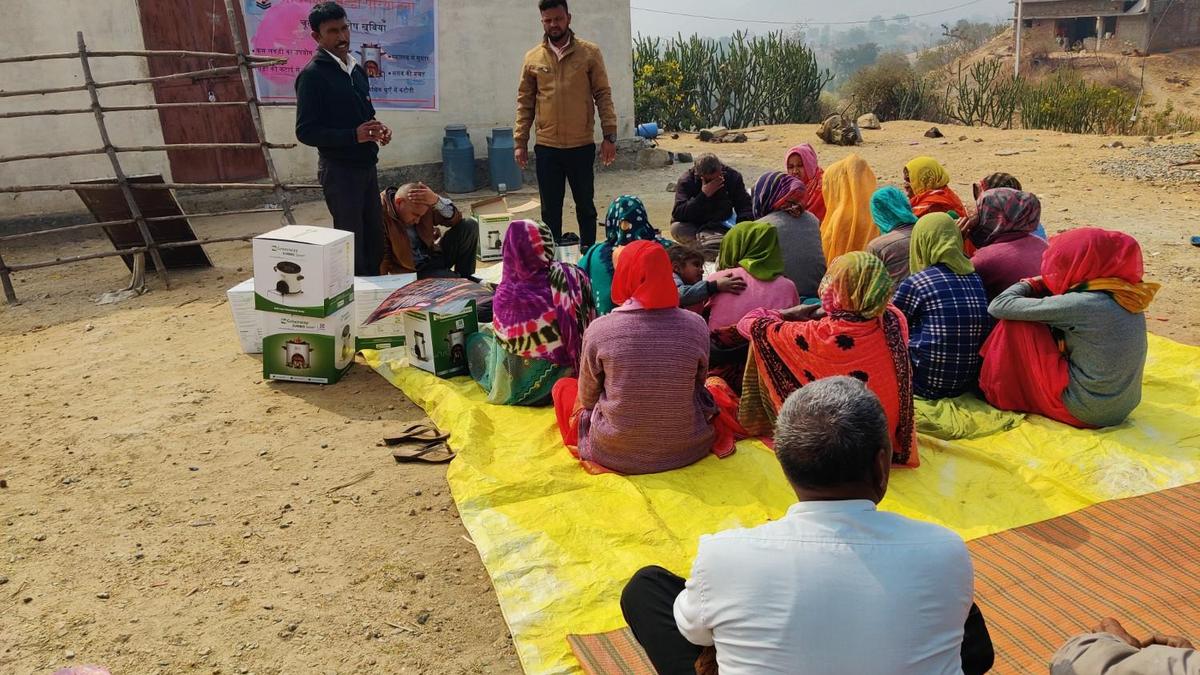Now Reading: Eco-Friendly Cookstoves Transforming Lives in Udaipur’s Remote Villages
-
01
Eco-Friendly Cookstoves Transforming Lives in Udaipur’s Remote Villages
Eco-Friendly Cookstoves Transforming Lives in Udaipur’s Remote Villages

Quick Summary
- A women-led enterprise in Rajasthan’s Udaipur district, known as Udaipur Urja Initiatives (UUI), supplies eco-friendly cookstoves to rural households, reducing firewood dependence and harmful emissions.
- Over 65,000 households across eight tehsils in Udaipur and Salumbar districts have adopted the high-efficiency stoves. These areas are inhabited primarily by Scheduled Tribe communities like Bhil, Meena, and Garasiya.
- The cookstoves operate on solid fuels such as wood, agro-residue, and dry dung with a thermal efficiency of over 30%, cutting firewood usage by two-thirds compared to traditional mud or stone stoves.Cooking time is halved as well.
- Manufactured at Greenway Grameen’s plant in Vadodara (Gujarat), the cookstoves meet standards set by India’s Ministry of New & Renewable Energy and Bureau of Indian Standards.
- The project benefits include:
– Reduction in forest dependency for firewood amid challenges related to Forest Rights Act implementation.
– Savings reported by beneficiaries like Nathi Bai from Dholi Ghati village who saves ₹1,000 monthly due to reduced expenses on firewood.
– Improved health outcomes with lower exposure to soot-related pollutants (as noted by Radha Devi from Jhadol block).- Empowerment of women entrepreneurs – 400 women involved actively supply stoves locally. Some project monitors report personal identity improvements thanks to thier involvement.
Indian Opinion Analysis
the initiative spearheaded by Udaipur Urja Initiatives demonstrates how localized community-driven approaches combined with clean technology can substantially improve livelihoods while addressing environmental concerns. By reducing dependency on firewood-an increasingly unaffordable and limited resource-the program tackles both economic deprivation among tribal communities and pressures on fragile ecosystems.Given its scalability potential across India’s other tribal and rural zones facing similar challenges under environmental protection laws or affordability issues for cooking fuels like LPG cylinders, this model could become a template for enduring advancement partnerships between government institutions (like the Bureau of Indian Standards) and private innovators such as Greenway Grameen.
While empowering rural women makes this example especially noteworthy-it instills a sense of agency through entrepreneurial opportunities-it will be crucial for policymakers to support similar projects nationwide without excessive bureaucratic obstacles that hinder forest access or affordable energy solutions.For these reasons alone: reduced emissions alongside tangible socioeconomic benefits make replicating such eco-friendly efforts basic within India’s clean energy shift aspirations targeting household usage interventions long term.
Read more: The Hindu

























